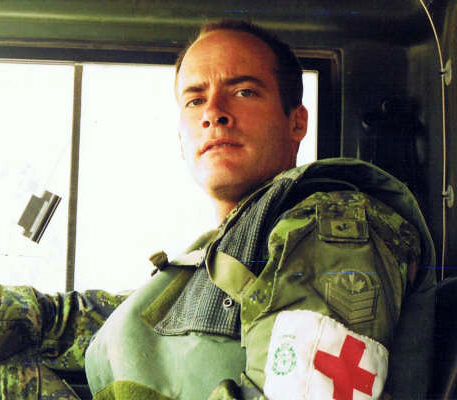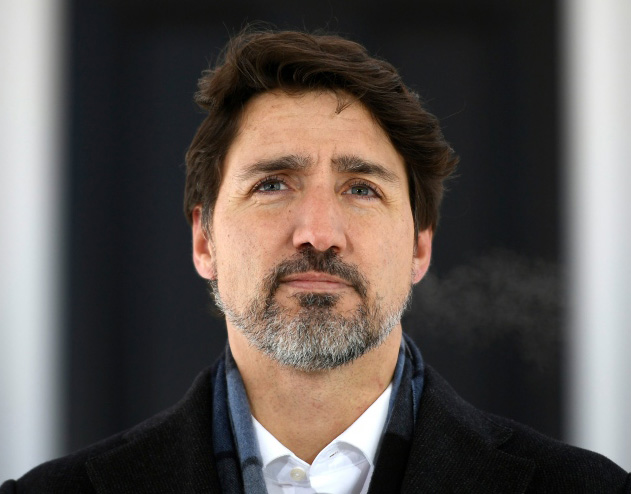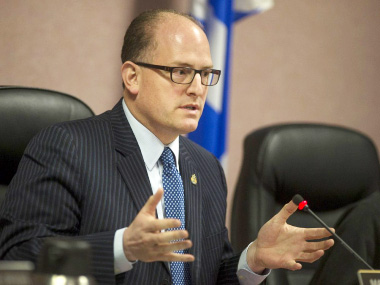
I don’t think I’d ever encountered a more driven medical professional in my life. When I met Bill Wilson back in 2004, to me he epitomized the ultimate first-responder. He was young, fit, even-tempered and well-informed; in fact, when I interviewed him, he’d already served as a front-line medic in Canada’s military operations to Somalia, Bosnia, Rwanda and Afghanistan.
Yet, there he was, a veteran from all those military hotspots, back studying at Canadian Forces Base Borden.
“I enjoy the role of responsibility,” he told me. “I love the challenge.”
On April 17, 2002, medical sergeant Wilson faced perhaps the toughest challenge of his medical career. That night U.S. Air Force jets mistook Canadian ground troops for insurgents in Afghanistan and unleashed a 500-pound, laser-guided bomb on training companies of Princess Patricia’s Canadian Light Infantry; it killed four and wounded seven more.
“I flew out of that ambulance so fast,” Wilson said. “I was focused on the casualties.”
After Afghanistan and the other deployments, when I caught up with Wilson a couple of years ago, he’d retired from the military, but not from medicine. He told me after his honourable discharge, he’d upgraded his skills to become a physician assistant in Windsor’s hospital system, and this month found himself back on the front lines fighting the COVID-19 virus applying the same intensity with which he attended the wounded in the war on terrorism back in 2002.
“Hard to believe that 18 years ago, I was painting my face for missions in Afghanistan looking for Bin Laden and his henchmen,” Wilson emailed me this week. “Yesterday, I shaved my face for the war on a virus. … My N95 mask, at least, will have a better seal.”

On Monday morning, Prime Minister Trudeau stepped from Rideau Cottage, where his family has self-isolated for the past week. While most of his daily press briefings this week have exhibited an air of reassurance (“We will get through this”), on Monday he showed the most emotion yet. He’s clearly angry that too many Canadians refuse to take seriously medical experts’ advice to self-isolate.
“We’ve all seen the pictures of people who seem to think they’re invincible. Well, you’re not.” Trudeau said, his face as stern as we’ve seen it. “Enough is enough! Go home and stay home!”
The Prime Minister has not resorted to the most powerful weapon in his legislative arsenal. But Justin Trudeau might have to unleash the Emergencies Act – as his father Pierre did with the War Measures Act in 1970 against FLQ terrorists – in order to get non-compliant Canadians’ attention.
I don’t toss Trudeau’s “enough is enough” rebuke out there as a threat, but rather as a plea on behalf of Canada’s front-line medical professionals. You and I cannot know what they’re experiencing because, unlike doctors, nurses and orderlies in our urban and regional hospitals, no cameras or microphones are allowed beyond the walls of the COVID-19 quarantine. Only they who are battling this unprecedented disease know its virulence and trauma.
By coincidence, this past week, I connected with a second professional inside the Windsor-area health-care system. Dr. Dave Paterson and I have communicated because, in a few weeks, we were supposed to fly to the Netherlands to join 75th anniversary commemorations of the Dutch Liberation at the end of the Second World War.
Predictably, Dutch authorities have cancelled all commemorations in May because their pandemic numbers, like the rest of Europe, grow exponentially – at this writing, 4,749 positive tests, 34 deaths. Front-line Dutch health-care workers are deeper into the so-called coronavirus upsurge than we are – in Canada 2,091 cases, 24 deaths. But we’re getting closer.
“It’s like sitting on a tranquil shore by the sea,” Paterson described to me. “Suddenly, this giant wave appears. There’s nothing you can do.”

If you think Dr. Paterson, now 72, is fear mongering, I’d add that authorities in Windsor – as in other Ontario health networks – are contacting retired physicians, such as Paterson, to reactivate their medical certificates and return to the medical front-lines ASAP. Add to that, I’d also direct your attention to the comments of Drew Dilkens, the mayor of Windsor.
“Our supply of masks, ventilators, gloves and gowns is not robust,” Mayor Dilkens warned on CBC News on Monday. “We’re not in dire straits, but the situation is critical.”
Behind where the mayor sits, where Ontario’s stretched medical system works furiously through admission, triage, quarantine and intensive care unit processes, out-of-retirement doctors such as Paterson and former wartime medics such as Wilson confront this menace day and night.
“My floor (has just been) designated the COVID admission floor,” Bill Wilson emailed me this week, and remembering that night in Afghanistan, he added, “I am right back in the thick of things.”
He’s not allowed to shame his non-compliant neighbours the way a prime minister can, or he too would say, “Enough is enough! Go home and stay home!”